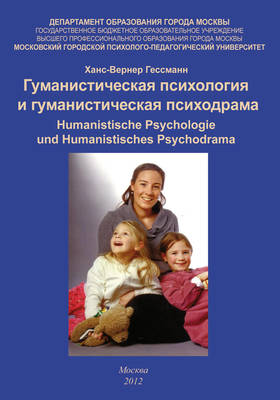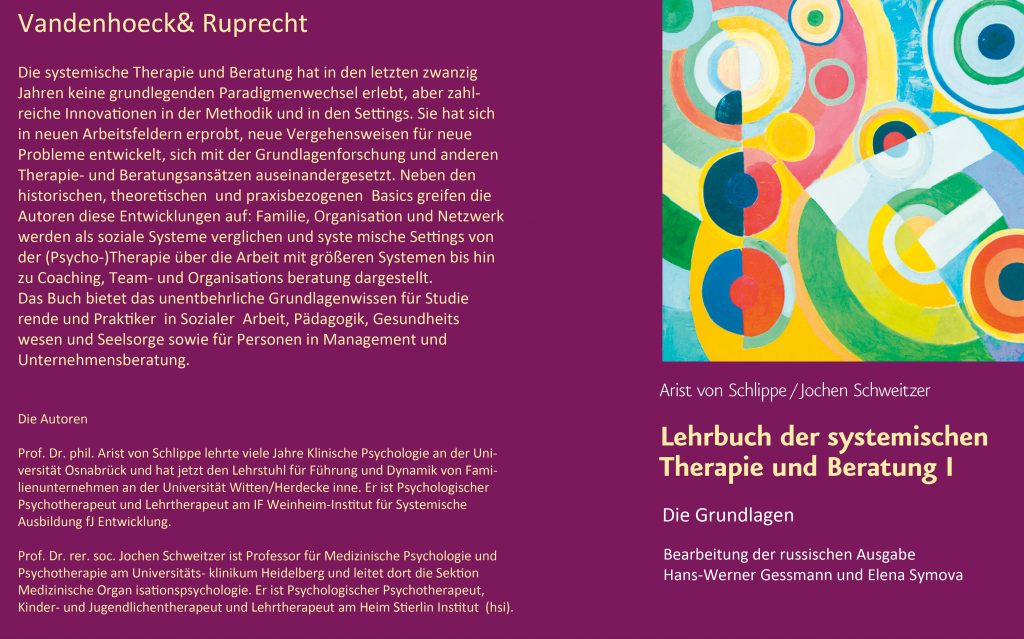ICCPP - Publications
Hans-Werner Gessmann - Vishal Lohchab - Transidentity
In recent years, the problem of transsexuality has become increasingly important. In an interdisciplinary room, transsexuality is viewed from the perspective of psychotherapy, psychodiagnostics, psychiatry, endocrinology, surgery and sociology. At the same time, it becomes more complex as it attracts more research and practical attention. Help for transgender people is not just a medical problem, but a social one. Finding a common methodological language, appropriate therapy regimens and social adjustment are key aspects of helping transgender people. This book introduces modern ideas about the biological predisposition to transsexuality and discusses genetic concepts. For English speaking specialists in the field of gender self-awareness and support for transgender people, the book’s autobiographies of people experiencing gender incongruity. From these autobiographical descriptions one can infer a person’s personal experiences. This book not only provides the reader with a complete and comprehensive understanding of the issues of diagnosis, therapy, and legislation in people with gender bias, but also allows them to feel the complexity and depth of these people’s experiences in relation to their social life and acceptance their identity and future.
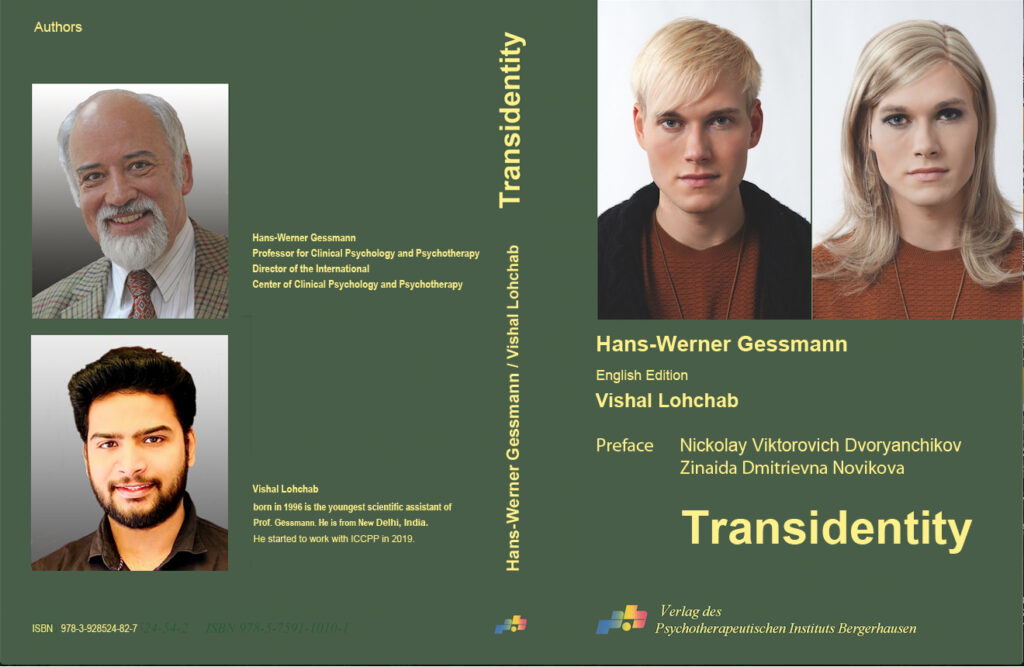
Kurt Guss - International Classification of Mental Disorders
The book is an introduction to psychiatry. The reader should be made familiar with the structure of this science. The focus is on the diagnosis and classification of mental disorders. The publication will be of interest to both medical and psychological students, as well as readers interested in the problems of psychiatry. The book vividly presents the basics of diagnosis, classification and treatment of mental disorders. It describes the problems of organic and symptomatic disorders, disorders caused by the influence of psychotropic substances, cases of schizophrenia and delusions, cases of affective disorders, neuroses, fears and Obsessive-compulsive disorders, psychosomatic disorders, problems in child and adolescent psychiatry, and diagnostic exercises. In addition to the basics of psychiatry, numerous clinical case studies are presented.
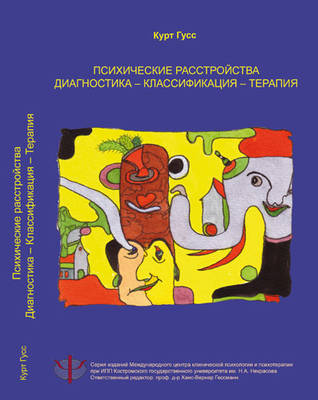
Hans-Werner Gessmann - Textbook for the introduction to psychotherapy
Autogenic training Bioenergetics Biofeedback
Conversational psychotherapy
Humanistic psychodrama Individual psychotherapy
Logotherapy
Rational emotive therapy
Rolfing
Transaction analysis
Primal scream therapy
Behavior therapy
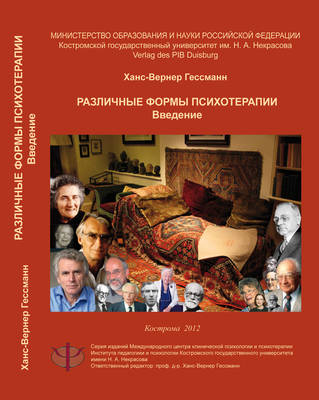
Hans-Werner Gessmann - Humanistic Psychology and Humanistic Psychodrama
You will receive the book as a pdf if you click on the cover picture !!
Dear Sir or Madam, The psychodrama is particularly suitable as a psychotherapy method to be used not only in adults but also in children and adolescents for the development of personality and for changing undesired behavior and experiences. It can therefore be used for prophylaxis in terms of child protection as well as for treatment in terms of child and youth welfare. I gained my first experience with the work of deviant and delinquent children and young people between 1970 and 1980 as the head of a state institution for the education of these young people. I began to modify the psychodrama accordingly for this particular therapy use and then to teach it internationally. During this time I worked e.g. B. in Switzerland for further training with teachers from the special schools of children with behavioral problems and difficult upbringing and since then also regularly several times a year in Greece in a further training center for psychotherapy. It is important for me to let you know how meaningful the work with humanistic psychodrama is in the field of legal psychology. In many German prisons it is the standard group therapy method. The question is asked again and again: What is the humanistic psychodrama compared to the classical psychodrama? The answer to that is the ebook released today.
Kurt Guss - Mental abnormalities
professor dr In his work, Kurt Guss deals with the disorders of the so-called elementary mental functions. Such disorders are processes that we notice and often reveal a complex clinical picture behind them. General psychopathology deals with the systematics of such phenomena and is therefore both a psychological and a psychiatric discipline. In this work, disturbances of perception, consciousness, orientation, thinking, memory and language, among other things, are dealt with and made clear to the reader using case studies.
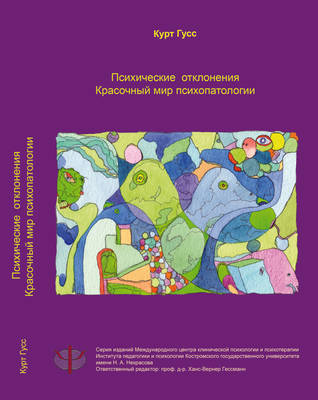
Hans-Werner Gessmann - Vortrag über Sigmund Freuds Traumdeutung von 1916
In 1916 Sigmund Freud gave a lecture “On the Interpretation of Dreams” at the University of Vienna. He dealt with the topics: What is sleep and what happens during sleep? How can we interpret the content of dreams? How do we find a way to understand the symbols of dreams? In this book, Hans-Werner Gessmann deals with this lecture and his ideas, while retaining Sigmund Freud’s original style of language and argumentation.
The book is part of the “Introduction to Psychoanalysis” teaching and learning materials for students. The text of the work was written in German and Russian. The book contains a DVD with video recordings in which Hans-Werner Gessmann lectures with a simultaneous translation into Russian on the “Introduction to Psychoanalysis: Report on Sigmund Freud’s 1916 presentation on the Interpretation of Dreams”.
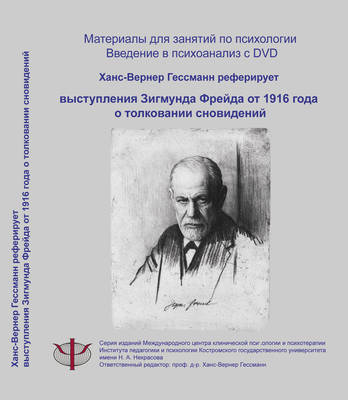
Hans-Werner Gessmann - Subjektive Krankheitstheorien
Dieses Buch beschäftigt sich mit den Problemen der subjektiven Theorien von Krankheiten im Zusammenhang mit der Untersuchung von psychologischen Krankheitsverursachungen und den Therapieerwartungen von Patienten. Die Arbeit beschreibt die Konzepte der subjektiven Krankheitstheorien, berücksichtigt neben der Beschreibung der subjektiven Krise die biomedizinische Sicht sowie auch psychologische und soziale Phänomene. Ein eigenes Kapitel widmet sich der Untersuchung der subjektiven Krankheitstheorien aufgrund der Krankheitsbewältigung von Patienten. In diesem Beitrag werden die Ergebnisse der modernen Forschung über subjektive Krankheitstheorien zusammengestellt und die Frage nach deren Auswirkungen auf den Umgang mit der Krankheit und die Gesundheit des Patienten dargelegt. Studien über das Bewältigungsverhalten zeigen Unterschiede bei Patienten mit einem Risiko für Herzinfarkt und Krebs-Patienten.
Das Buch ist für praktizierende Psychologen, Psychotherapeuten , Ärzte, als auch für ein breites Spektrum von Lesern bestimmt. Die Veröffentlichung ist für Profis empfohlen, die an der Entwicklung von psychischen Ursachen von Krankheiten und physiologische Funktionen von Bewältigungsverhalten von Patienten interessiert sind.
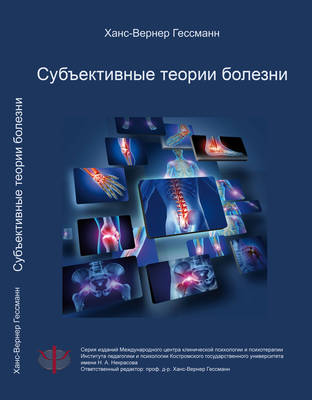
Kurt Guss - Psychische Krankheitsbilder an Beispielen aus der klassischen russischen Literatur
Das Buch untersucht die Muster von psychischen Erkrankungen nach der Internationalen Klassifikation psychischer Störungen (ICD -10). Der Autor konzentriert sich bei der Diagnose und Klassifikation von psychischen Krankheiten auf die Erforschung von Wahrnehmung, Denken, Gedächtnis und Sprache und nutzt hierzu zahlreiche Beispiele aus der klassischen russischen Literatur.
Das Buch ist für Studenten der psychologischen Fachgebiete zu empfehlen, besonders auch praktizierenden Psychologen, Psychotherapeuten, Diagnostiker sowie dem interessierten Leserkreis.
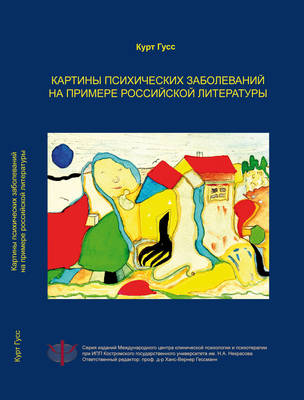
Jürgen Kriz - Selbstaktualisierung
Selbstverwirklichung
Personenorientierter Ansatz und Systemtheorie
Der Titel dieses Buches spiegelt das Schlüsselthema sowohl von Karl Rogers ‘persönlichkeitsorientiertem Ansatz als auch der modernen Systemtheorie wider. Das Problem der Selbstverwirklichung schafft eine Spannung zwischen dem linkshumanistischen Ansatz bei der Behandlung von Familiensystemen und der Gestaltpsychologie und liegt auch dem “modernen” systemischen Denken im Bereich der Naturwissenschaften zugrunde. Die meisten Menschen glauben an einen signifikanten Unterschied zwischen Motor und Mensch, verwenden aber immer noch kognitive Werkzeuge der mechanistischen Wissenschaft.
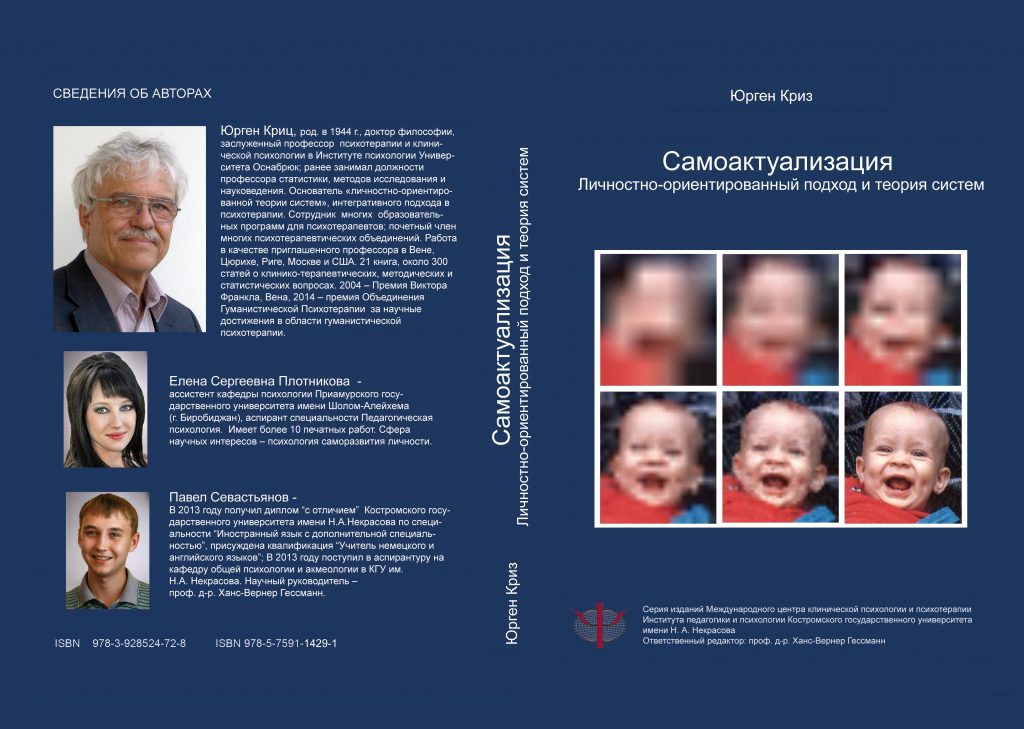
Zweck dieses Buches
Es besteht darin, den Leser mit Gedanken, Ideen und Metaphern zu versorgen, die ein besseres Verständnis für die Prozesse des Lebens und unserer Seele entwickeln.
Jürgen Kriz ist einer der wegweisendsten Denker auf dem Gebiet der humanistischen persönlichkeitsorientierten Psychologie. Dieses Buch vereint mehrere Werke, die auch in Übersetzung wunderbar präsentiert werden. Als Suchscheinwerferin beleuchtet sie den Prozess des Sehens unserer Welt, sei es ihre wunderbare Komplexität oder Vereinfachung, die sich auf Ordnung reduziert.
Godfrey Barrett-Lennard
Dieses Buch kombiniert auf mutige Weise die wissenschaftliche Theorie der Selbstorganisation mit einem persönlichkeitsorientierten Ansatz und bietet aus Sicht der interdisziplinären Systemforschung eine moderne Alternative zur mechanistischen Erklärung unserer Welt.
Jeffrey HD Cornelius-White
Jürgen Kriz, Professor für Klinische Psychologie und Psychotherapie an der Universität Osnabrück und Gastprofessor an mehreren Universitäten in Europa und den USA. Er ist praktizierender Psychotherapeut, Leiter und Vorsitzender des wissenschaftlichen Beirats einer persönlichkeitsorientierten Gesellschaft in Deutschland (GwG). Kriz wurde für sein Lebenswerk mit dem Grand Victor Frankl, dem Wiener Stadtpreis, ausgezeichnet, der auf dem Gebiet der humanistischen Psychotherapie internationale Anerkennung gefunden hat.
Arist von Schlippe - Lehrbuch der systemischen Therapie und Beratung I
Das Grundlagenwissen
Die systemische Therapie und Beratung hat in den letzten zwanzig Jahren keine grundlegenden Paradigmenwechsel erlebt, aber zahlreiche Innovationen in der Methodik und in den Settings. Sie hat sich in neuen Arbeitsfeldern erprobt, neue Vergehensweisen für neue Probleme entwickelt, sich mit der Grundlagenforschung und anderen Therapie- und Beratungsansätzen auseinandergesetzt. Neben den historischen, theoretischen und praxisbezogenen Basics greifen die Autoren diese Entwicklungen auf: Familie, Organisation und Netzwerk werden als soziale Systeme verglichen und systemische Settings von der (Psycho-)Therapie über die Arbeit mit größeren Systemen bis hin zu Coaching, Team- und Organisationsberatung dargestellt.
Das Buch bietet das unentbehrliche Grundlagenwissen für Studierende und Praktiker in Sozialer Arbeit, Pädagogik, Gesundheitswesen und Seelsorge sowie für Personen in Management und Unternehmensberatung.
Die Autoren
Prof. Dr. phil. Arist von Schlippe lehrte viele Jahre Klinische Psychologie an der Universität Osnabrück und hat jetzt den Lehrstuhl für Führung und Dynamik von Familienunternehmen an der Universität Witten/Herdecke inne. Er ist Psychologischer Psychotherapeut und Lehrtherapeut am IF Weinheim -Institut für Systemische Ausbildung fJ Entwicklung.
Prof. Dr. rer. soc. Jochen Schweitzer ist Professor für Medizinische Psychologie und Psychotherapie am Universitäts- klinikum Heidelberg und leitet dort die Sektion Medizinische Organisationspsychologie. Er ist Psychologischer Psychotherapeut, Kinder- und Jugendlichentherapeut und Lehrtherapeut am Heim Stierlin Institut (hsi).
Adam Blatner - Grundlagen des Psychodramas
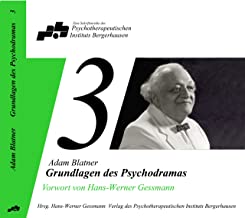
ISBN 978-3-928524-76-6
spezifischere Begründung für die Verwendung psychodramatischer Methoden zu präsentieren. Ausgehend von allgemeinen Perspektiven hin zu spezifischen Implikationen habe ich versucht, eine logischere Abfolge von Ideen zu konstruieren.
In den 12 Jahren seit der letzten Ausgabe wurden eine Reihe anderer Bücher über Psychodrama geschrieben, zusammen mit Kapiteln in Lehrbüchern und Zeitschriftenartikeln. Wenn ich über meine früheren Arbeiten zusammen mit diesen anderen Beiträgen nachdenke, habe ich versucht, nicht nur die Theorie – oder tatsächlich viele Untertheorien -, aus denen dieser Körper besteht, zu betrachten, zu verfeinern, neu zu ordnen und weiterzuentwickeln und auf einer tieferen Ebene weiterzuentwickeln des Wissens, aber auch der Philosophie, die der Theorie zugrunde liegt. Hinzu kommen die Erfahrungen, die ich in den letzten 35 Jahren in der Psychotherapie, im Unterrichten und in der Beratung als Psychiater für Erwachsene und Kinder in einer Vielzahl von Situationen gesammelt habe.
Peter Felix Kellermann - Focus Psychodrama
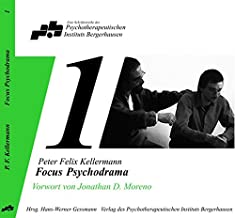
ISBN 978-3928524469
The book examines the professional roles assumed by psychodramatists and discusses the interpersonal relationships that develop between participants in a psychodrama group.
Likewise, the therapeutic value of catharsis, emotional abreaction and the use of the ‘acting-out’ concept will be examined and how methods of ‘acting insight’ bring about profound learning experiences. It concludes by discussing problems of resistance and the importance of the concept and technique of the conclusion of any psychodrama.
An attached process analysis checklist provides systematic help in assessing the professional skills of psychodramatists.
Pragmatic and grounded in theory, Focus introduces psychodrama to an effective, comprehensive alternative to traditional verbal therapies.
Vishal Lohchab / Hans-Werner Gessmann - Statistics
Introduction to important statistical tests in the social sciences
Today, statistics finds a wider place in education, research and practice in the social and behavioral sciences. In short, statistics sets two learning goals:
(1) to impart in-depth knowledge of scriptive and inferential statistical methods (aims: being able to carry out procedures; acquiring computational skills; the appropriate procedure according to dialect, etc.)
(2) Specify the prerequisites of logical and scientific theory and the basics of statistical analysis methods (aim: knowledge of the underlying models; insight into the possibilities and limits of user generation
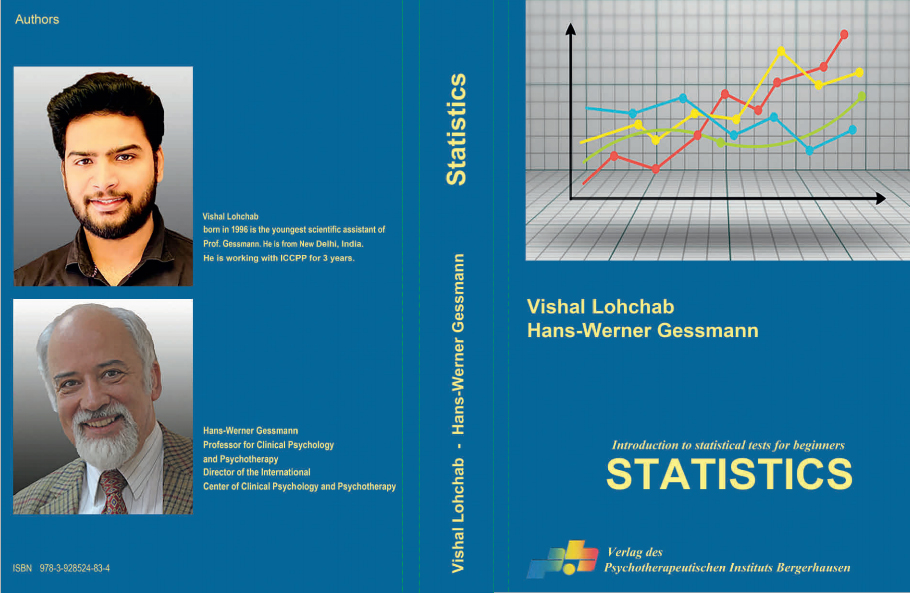
ISBN 978-3928524-83-4
statistical methods; discussion and criticism of methods; Experience in practical use) We consider these learning goals to be particularly important and are rarely achieved due to the limited training time. This assumes, of course, that a student is able to formulate formally correct data and use the data to analyze statistical methods; Because even the best test leads to wrong conclusions if you use the wrong test or use the right test but the test value is determined incorrectly. In our opinion, however, this does not mean that the student should know exactly what you need to know. It makes much more sense to use examples in training, i.e. to explain the syllabus of the statistical test procedure in detail, from the arrangement of data using methods that are used less and less to the decision on hypotheses through calculations. Exemplary free time can be used to strive for the goals listed under (2). We strive for these goals by considering the later professional practice of the students for knowledge and experience with multiple job-related examination procedures, placing the focus on the use of specialist literature and reading or writing independently with research skills and pronounced skills, and evaluating empirical studies.
The goals outlined in (2) can be set by the individual after completing the training, and they can only be achieved by a specialist with great effort – a lack of knowledge can lead to “technical” problems of a process being easier to achieve or to pass are . Refresh your knowledge. These comments are part of our experience. Reflecting on statistical and methodological training is intended to shed some light on the background of this book. We ask the reader to inform us about deficiencies and shortcomings so that we can correct them in the next edition.
Delhi and Aichach, January 2022, Vishal Lohchab & Prof. Dr. Hans Werner Gessman

